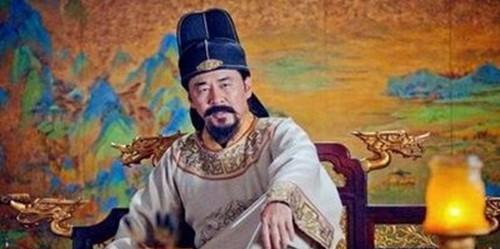As long as we have studied the history of high-Chinese subjects, we should know that the "conscription system" of the Song Dynasty, as an improved conscription system, is like a gushing spring in the ancient history of our country, and this system has been studied by many historians. Compared with the conscription systems of the Qin, Han, Sui and Tang dynasties, it has almost no forced color.

Looking back at history, the conscription system of other dynasties themselves more or less carried the "mandatory" element, and in the Song Dynasty, it was completely "voluntary" to "become a soldier", and once a man enlisted in the army, the Great Song Dynasty would concentrate a large amount of financial and material resources to provide for soldiers, and being a soldier became a new profession of self-choice.
As mentioned above: One of the major features of the so-called "conscription system" of the Song Dynasty is that the Great Song provides funds to support the soldiers and the soldiers' families, which will undoubtedly require a large and not small expenditure, so the fundamental foundation of the Song Dynasty's conscription system is "material", which reflects that the Song Dynasty was not lacking in materials at that time.
We should have realized this from the very beginnings of the conscription system. Before the Song Dynasty, the conscription system was born in the middle period of the Tang Dynasty, when the Tang Dynasty already had the initial material basis for implementing innovative "conscription". Unfortunately, such a system did not last long with the good wishes of the imperial court, and then with the wars in the late Tang Dynasty, this budding "military system" was also stifled in the initial attempt stage. It was not until the Song Dynasty, thanks to the prosperity of the Song Dynasty in East Asia at that time, that the conscription system was restored.
Some readers may wonder: Is there anything bad about "conscription"? Objective analysis, the negative effect is still there. Why? And look! Take, for example, the famine year conscription policy. Whenever a natural disaster caused a famine, the Song court would enlist villagers in order to resettle displaced farmers. Here, we have to mention another feature of the Song Dynasty's conscription system, that is, the soldiers of the Song Dynasty were people of another class.
Once enlisted, it was impossible for these townspeople to return to the life of the peasants. Some readers may say that conscription in the famine year will make it impossible for a large number of peasants to participate in labor production, and after the famine year, the land will be deserted. Aren't the shortcomings of this "conscription system" big enough? The author thinks that "recruitment" is certainly difficult to say perfect, and there are certain shortcomings, but as mentioned earlier, the merit is greater than the excess.
What we need to understand is that the area where the system of conscription in the famine period was implemented belonged to the area where agriculture was relatively underdeveloped, and the Jiangnan area where agriculture was extremely developed basically did not see "conscription", so the "conscription system" that was still carried out during the famine year would not have too much negative impact on the fundamental development of agriculture in the Song Dynasty at that time.
For many ordinary people in the Song Dynasty at that time, even if they encountered a rare famine year in farming, everyone would first think of other ways: unless they were forced to do so, many townspeople would not consider enlisting as soldiers. Why? Because as we all know, the Song Dynasty practiced a leading idea of "emphasizing literature over martial arts", the status of soldiers declined sharply compared with the previous dynasty, even if the enlistment of ordinary people such as villagers could solve the basic survival problems of themselves and even their families for a while, but at that time, people still had a little other way, in the hearts of the Song people, "wearing armor" would not be the first subjective choice of individuals.
Finally, on the whole, the conscription system of the "conscription system" is still positive for the production of the Song Dynasty as a whole, especially for the poor people, the proposal of the system allows them to no longer be separated from their families, and to a greater extent reduces the servitude suffered by ordinary people, this measure can fully ensure a large number of working hours of peasants, and in turn actively promote the economic development of the Song Dynasty, so the prosperity of the Song Dynasty is not short.